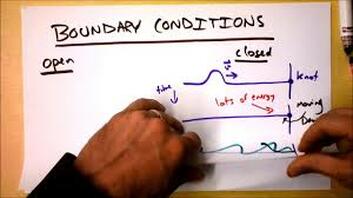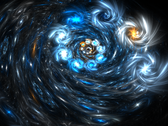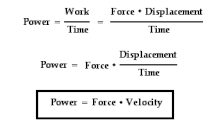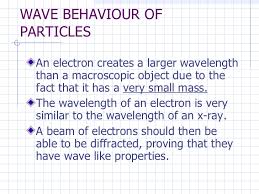
Boundary Systems. What are they for? To protect us. We set ourselves boundaries to encapsulate what we hold to be dear. To reinforce our comfort zones. To establish parameters beyond which others should, to our view, not step. Are they useful? What purpose do they serve? Boundaries are Closed - there are no 'Open Boundaries' as illustrated by the image attached. Like constants and constraints, they may be perceived to have worth, but by whose definition? There are two sides to the fence, one side impulsed to defend itself from attack, the other waiting to establish some degree of freedom..

Screen writers such as Gene Roddenberry (Star Trek), Arthur C. Clarke (Space Odyssey), and Richard Dean Anderson (Stargate SG1) made their fame and fortune on the basis of the latter. As did the scientists (Einstein, Fermi, Bohr, Schroedinger, Planck, et al) in the heyday of quantum mechanical evolution.
Today there are no Einsteins in sight, and the iconic movies that made history are seemingly irreplaceable. We're left to our own devices with the information at our disposal, the stuff we have been given "to make sense of" in our miniscule 3D timelines. As the quantum units we must accept ourselves as being, we may not bear great significance in the master plan of cosmic consciousness, but surely we play a part, otherwise what would be the point of living in the world as it is now, as we do? We set great store by the choice/destiny paradox, questioning as we go, contemplating the Universe for heavens sake, and trying to calibrate where science and spirituality might find some common ground.

We've seen women trying to emulate men in seeking promotion and success. We've seen men at a loss to find merit in female thinking as they try to redress the imbalance of women in positions of influence. The Old Paradigms haven't worked, and now we know that we need to change them.
Way back when, the things men and women were Supposed to Do was left in a no-choice zone, a vestige of the hunter-gatherer era wherein women ran the household and men supplied the livelihood. Ironically, the suffragette movement coincided with the birth of quantum mechanics, though that's not a common consideration, for at the time the females were intent on setting themselves a mark in political history and the scientists were keeping their findings very close to their chests. We haven't yet come round to viewing that strange equation. But it's a different proving ground now, we have a blank space to work with. We're on a quest for equilibrium, and want to leave the power struggle behind. Power Struggle is Old Paradigm. Power Balance is New Paradigm. The question is, how are we going to attain it? Frankly, we don't know. We're only just beginning to find out.

Boundaries per se are pushed hard in striving for what we (independently) perceive as necessity rather than in seeking consensus. We see something wrong in the way another person behaves or thinks, and we try to limit their impact on us by setting a boundary against it. What would happen if we took down the barriers we subsequently erect, and allowed those different processes in action and thought to take part in the process with equal validity? What if we stopped judging the world lines of other people and started taking down the blocks to their personal (and collective) validity?
In so doing, we would set ourselves a course for the unknown. However, clutching to certainty never did us any favours. The Universe does not deliver what we imagine it is going to, by virtue of the Uncertainty Principle. And if you haven't yet expanded the Uncertainty Principle to apply beyond the simplistic behaviour of electrons, you wouldn't be reading this Blog. Hello there - you again. Looking forward to that.
 RSS Feed
RSS Feed
